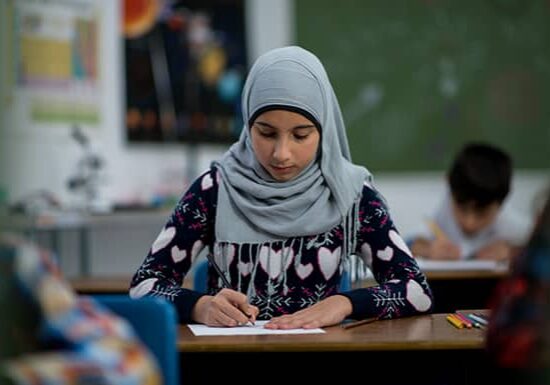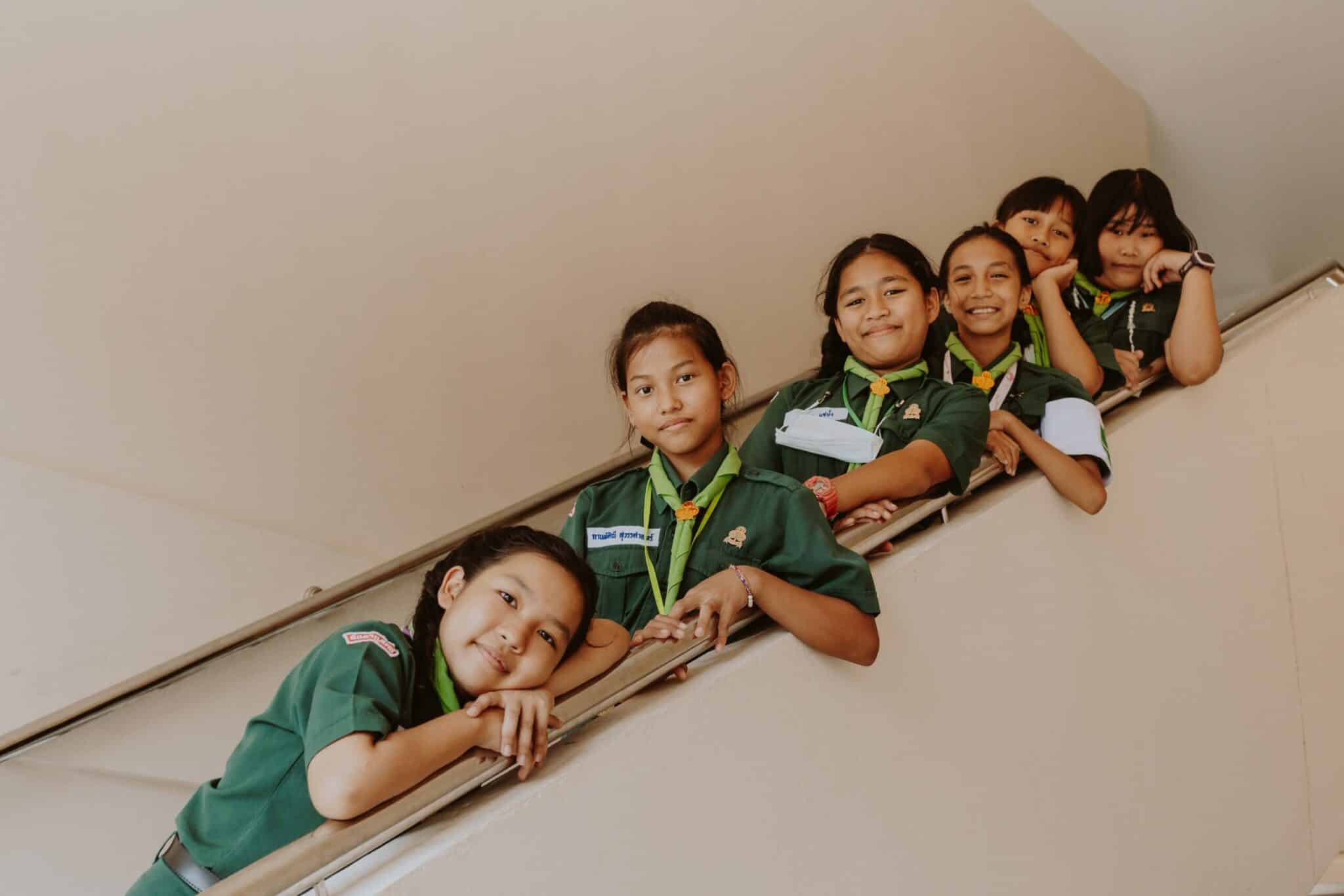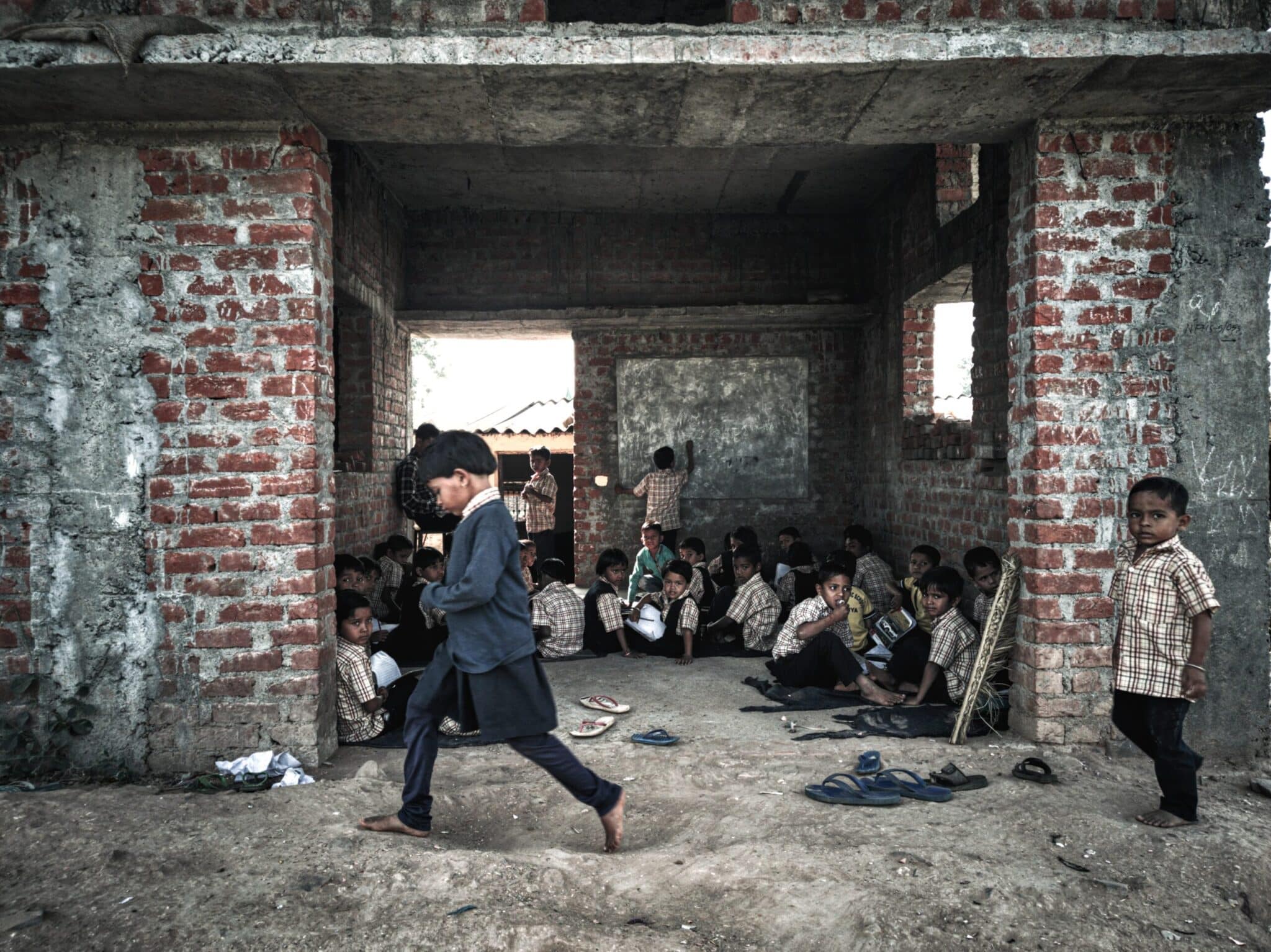Education as a Human Right is Changing Our World
Updated: June 19, 2024
Published: March 9, 2022

Education as a human right is an important and worthy discussion. It might surprise you to know that accessible education for all is a relatively new concept on the timeline of human history. And for some, it’s still just a dream.
If we are going to change the world, we must believe that education is a right, not a privilege. It is key to accessing other human rights such as freedom from slavery, freedom from torture, the right to work, and the right to a fair trial.
Education gives you the framework to be innovative, productive, and affect social change.
What are Human Rights?
The United Nations defines human rights as those that are inherent to all human beings. They aren’t based on your sex, race, ethnicity, religion, or any other status. Education as a human right is something that we all can agree on.
If education is a right, not a privilege, the government should understand it must protect the right. And if they fail in their responsibilities, there must be ways to hold them accountable.
Why Should Education be Considered a Human Right?
The foundation for understanding all human rights is built on an education that engages the mind and the soul. It’s a right worthy of protection because it positively impacts the world.
An education:
- Helps to lift people out of poverty
- Teaches people their value to employers
- Narrows the gender gap experienced by girls and women
- Reduces the infant mortality rate
- Teaches people communication and critical thinking skills

How is Education Not a Right Today?
Though America has come a long way from one-room schoolhouses with barely educated teachers, there is still tremendous room for improvement. It might shock you to learn that the right to education is still not protected by the Constitution.
This lack of Constitutional protection results in major disparities across the country that are too often reflected in national test scores. The Tenth Amendment leaves the power to establish education up to individual States. If there is any sort of corruption, educational outcomes are even worse.
The United States isn’t the only nation that’s struggling. Education statistics around the world remain troubling, particularly in developing countries. Of the 195 countries in the world, only 99 guarantee at least 12 years of free education. The literacy rate among young people aged 15 to 24 is almost 92%, but that other 8% represents 102 million youth who lack even the basics in reading and writing.
Poverty, armed conflicts, corruption, indifference, and inequality are all still barriers to the right to an education.
The Challenges to Education as a Right
Education as a human right must be protected, but there are still many challenges to overcome.
School fees remain one of the biggest barriers to education. While most developing nations have eliminated tuition fees, the cost for books, uniforms, supplies, and transportation remains prohibitive. Girls who live in poverty are often forced to forego school in favor of brothers because parents can’t afford to send everyone to school.
School-aged refugee children live in chaotic and unstable environments, and more than half of them (3.7 million worldwide) don’t attend school.
Children who don’t go to school or drop out get caught in a cycle of poverty. They grow up, struggle economically, and have children they can’t send to school because there is no money. Protecting the right to education is vital to breaking these cycles.
Holding fast to education as a right, not a privilege, creates an environment where teachers are highly valued. One of the most effective ways to destabilize a country is to attack the importance of education and the worth of its teachers.
Along that line, privatization remains a challenge to education. It is profit-driven and increases education costs while reducing the quality of services. Privatization often leads to corruption because accountability is no longer in the public domain.

Why Education Should be a Right: Personal and Societal Benefits
When we believe that education is a right that we must protect, we understand the value is much more than a diploma. We are stating that we believe in the personal and societal benefits of that education.
Here are just 8 benefits that come from an educated population:
1. Higher Income
With an education, you have better opportunities for higher-paying jobs. And post-secondary education, in particular, allows you to specialize in a field.
2. Improves the Economy
Countries that view education as a human right and whose citizens are highly literate are more productive. The GDP is higher in these countries and so is the per capita income.
For example, the GDP of Norway is $62,777 per capita and the country has a literacy rate of 99%. Compare that with the GDP of Haiti, which is $1,309.44 per capita, and has a literacy rate of 61%. Although this is just one example, there is a staggering correlation between literacy rates and productivity rates across countries.
3. Problem-solving Abilities
Educated people are taught the skills to think critically on a personal, local, national, and even global level.
4. Employment
Advocating for the right to education supports employment. When you are educated, you have better opportunities with fewer competitors.
5. Modern Society and Innovation
Education teaches you about your history, culture, and government. It prepares you to make critical decisions in the best interests of others.
6. Poverty Reduction
Education is a right that must be protected because it’s the best way to reduce poverty and the opportunity gap. Educated people break cycles of poverty by landing better-paying jobs.
7. Health Benefits and Crime Reduction
Living in poverty negatively affects health, and sometimes people who are struggling resort to criminal behavior. An education improves job prospects which directly impacts and eliminates these struggles.
8. Reduces Child Marriage
Child marriage remains a common and concerning practice in many developing nations. By viewing education as a right, not a privilege, girls who receive even a secondary school education can delay marriage.
How the University of the People is Making Education a Right
The University of the People is on the front lines of the battle to guarantee education as a human right. Our institution has revolutionized education by being the first non-profit, tuition-free, American accredited, online university. Students choose one of our online degree programs in business, health science, education, and computer science.
As a student, you can gain access to accredited programs that are 100% online and tuition-free. Course content is prerecorded, providing the flexibility that allows you to work out your study time according to your schedule.
The Bottom Line
We must continue to support education as a human right. In doing so, we empower people to improve their lives and to make the world a better place.
Knowledge is indeed power, and education is the catalyst to change.
